Jawbone loss is a dangerous complication that occurs when teeth are lost, affecting the aesthetics and function of the face as well as chewing. If not treated promptly, jawbone loss can affect the process of dental implants, leading to increased costs and treatment time. Therefore, it is best to correct tooth loss as soon as possible to avoid this condition. So how long does it take for jawbone loss to occur after tooth loss?
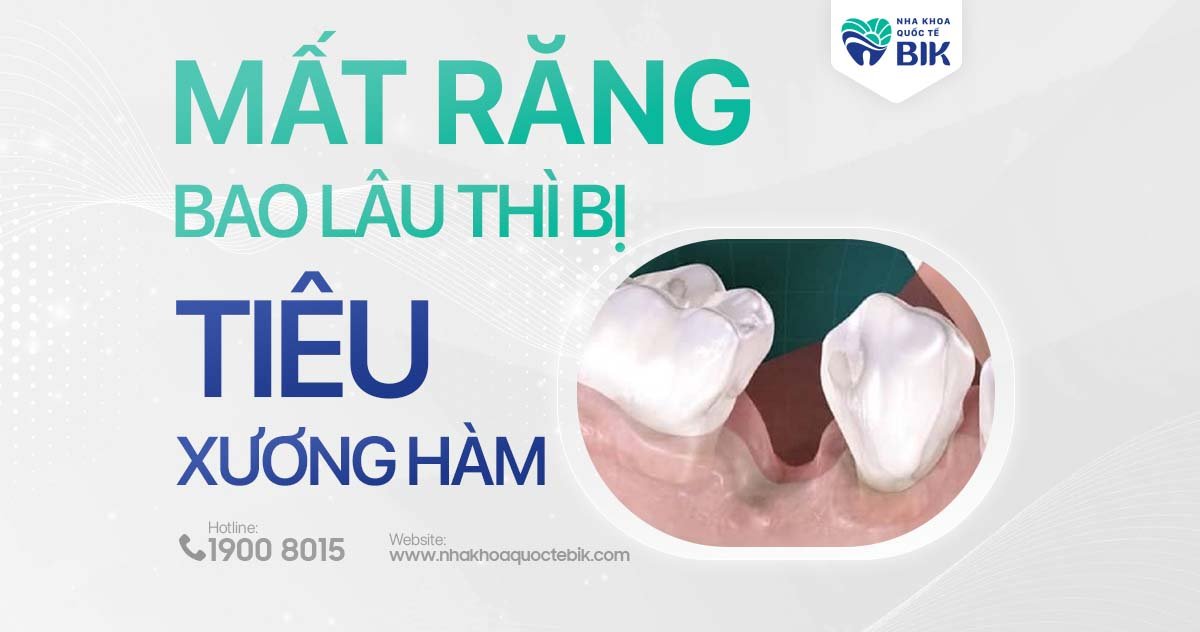
What is bone loss?
Bone loss, also known as jawbone loss, is the process of reducing the thickness, height, quantity and volume of the alveolar bone and surrounding areas. By looking with the naked eye, we can see that the position of the lost tooth will be deeper than the surrounding bone, causing the root of the tooth next to it to become exposed.
Bone loss can cause many problems for patients, not only in terms of aesthetics but also affecting dental health, such as receding gums, tilted teeth, loose teeth, uneven bites causing difficulty in chewing function, buck teeth and difficulty in adjusting tooth shape.
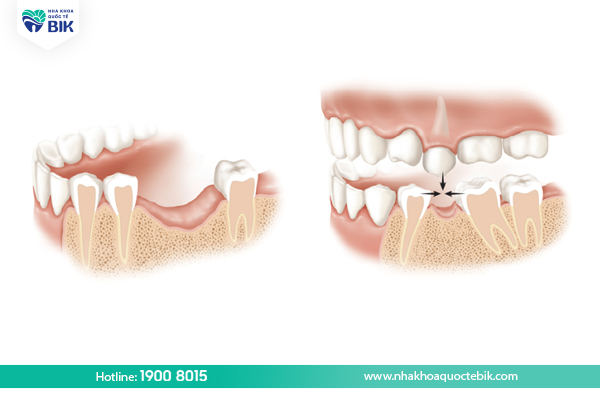
To avoid this condition, patients need to pay attention to how long after tooth loss bone loss can occur and how to prevent and overcome jaw bone loss.
Consequences of bone loss
Similar to other parts of the human body, when there are problems or are affected, jawbone loss can also cause serious health impacts. Below, BIK International Dentistry will point out the consequences that tooth loss can cause due to jawbone loss.
Deterioration of overall health
When the jawbone is gradually lost, it will cause the size of the jawbone to decrease in both width and height, not strong enough to withstand pressure. Over time, this can lead to teeth becoming misaligned and becoming thinner.
When this condition occurs, it creates favorable conditions for bacteria to grow, causing problems such as headaches and seriously affecting health.

Difficulty chewing
When the jaw cartilage is lost, the surrounding teeth can gradually move towards the position where the cartilage is lacking. This condition can cause the teeth to become tilted and more prone to fracture.
In addition, the loss of jaw cartilage can also cause the bite to become misaligned, affecting the ability to chew food. Chewing food will then become more difficult and time-consuming.
Premature aging, loss of facial aesthetics
When the height of the jawbone decreases, the gums will recede and expose the tooth roots, causing loss of aesthetics. If bone loss is severe, the aging process will occur rapidly, making you look noticeably older.
Difficulties in dental restoration
Jawbone loss causes the surrounding teeth to move, leading to them being pushed into the position of the missing tooth. This condition will make the teeth become misaligned and more prone to breakage.
In addition, jawbone loss also affects the bite, making chewing difficult. At that time, chewing will become time-consuming and ineffective.
Damage to the remaining teeth
When the jawbone is gradually lost, the remaining teeth will be displaced from their original position due to lack of support from the lost bone. This can lead to bad, loose teeth and the risk of further tooth loss.
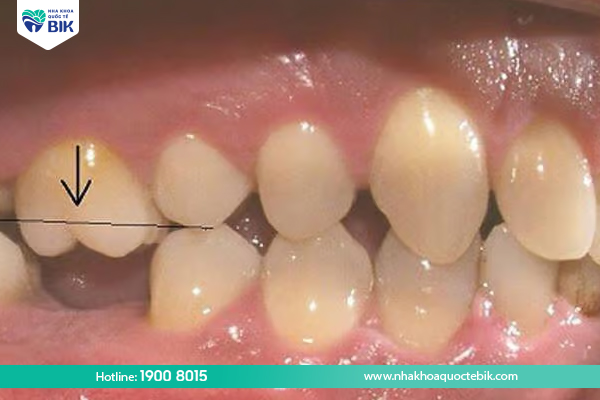
How long does it take for jaw bone loss to occur?
After tooth loss, the process of jaw bone loss will occur slowly and will not cause pain to the patient. Usually, after about 3 months from tooth extraction, the patient will begin to feel signs of jaw bone loss. If not treated promptly, after 6 months, up to 25% of the jaw bone can be lost, and from 45-60% after 1 year.
Although the rate of bone loss after tooth loss depends on each person’s constitution and health, early examination for advice on remedies is very important. This helps ensure chewing ability, overall dental health and oral aesthetics.
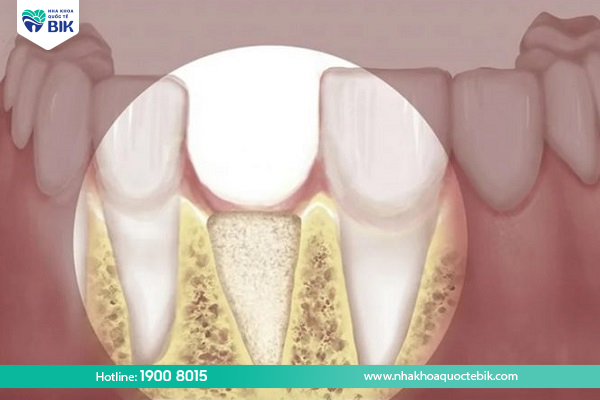
Dental implants to overcome jaw bone loss
Determining how long it takes for tooth loss to lead to jaw bone loss and other complex problems will help you realize the importance of overcoming tooth loss as soon as it is detected.
Among the methods of treating tooth loss, dental implants are considered the most modern and versatile method, ensuring aesthetics, high durability, chewing function like real teeth and the ability to prevent jaw bone loss.
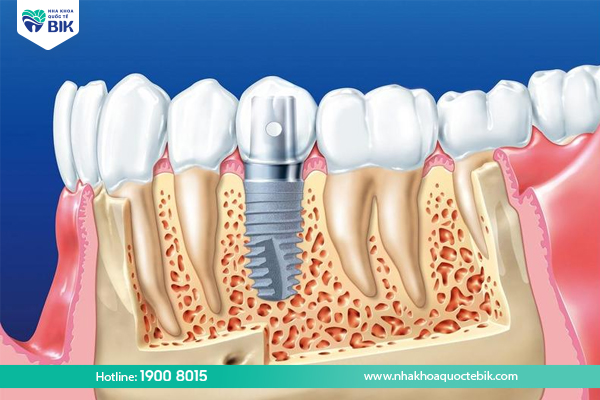
The dental implant procedure includes implanting the implant post into the jaw bone, then attaching the Abutment joint and the porcelain crown on top, forming a complete tooth. This helps to completely restore tooth function, prevent jaw bone loss and other oral problems.
The issue of the appropriate time to implant teeth after tooth loss is also something that many people are concerned about. Normally, after about 2-3 months from tooth loss, you should visit the dentist to start the dental implant process. At this time, the wound has healed and the jawbone has stabilized, helping the integration process with the denture to take place quickly.
However, to make the most accurate decision, you should visit and be consulted by a dentist immediately after tooth loss, to know the most appropriate time and method for your specific case.
Hopefully, through the information about how long it takes for jawbone loss to occur after tooth loss, you have a better understanding of this issue. If you need more information, please contact BIK International Dental Clinic for detailed advice.


















